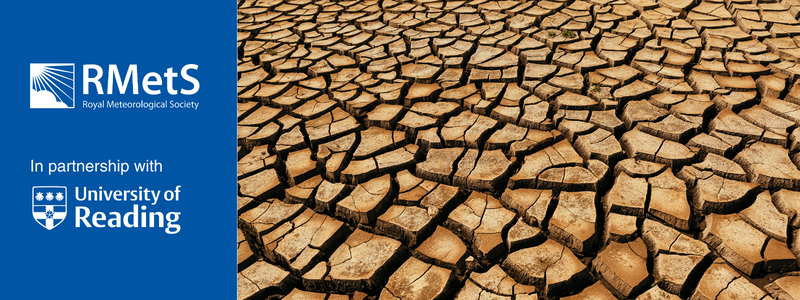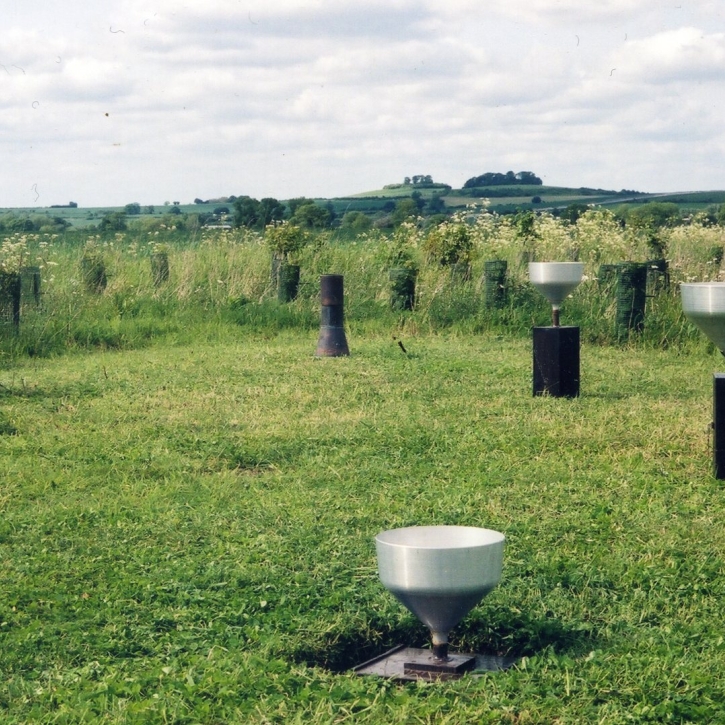

MASTERCLASS | Droughts and Flash Floods
LOCATION
Globally weather extremes are reaching headlines with seemingly increasing regularity, home and aboard. Our changing climate brings with it great scope for drought and floods, a combination that initially appears counter intuitive, but less rain, falling heavier when it occurs, as expected for the UK will bring just that. With the climate emergency making regular headlines and very much now in the public gaze, details other than warming are increasingly important in what appears a rapidly changing world.
In this talk we considered what is a drought (the different types of drought) and the impacts of it, and hence how exceptional 2022's UK drought was. Then focused on flooding, what is flash flooding which often follows drought (as it did in summer 2022 in the UK). What we can do in a world where intense, flood producing rain becomes more frequent? We looked into forecasting flash floods, from the weather forecasts of intense rainfall to the hydrological models of the water systems that may be overwhelmed. What is still needed in these forecasts - and what systems are needed to make warnings useful? Are there lessons to learn from other places and fields?
Speaker
Rob Thompson
Dr Rob Thompson completed his PhD at the University of Reading in 2007. He has worked on rainfall measurement, particularly by operational weather radar, but also surface measurement gauges and now satellites and is known for an eye for weather statistics. He has particularly focused on potentially flash flood producing intense rainfall and was involved in the Flooding from Intense Rainfall program integrating meteorology and hydrology.
Responders
Keith Fenwick, Senior Hydro-meteorologist, Flood Forecasting Centre (FFC)*, Exeter, U.K.
During my time at the FFC I have been involved in assessing and communicating the flood risk for England & Wales routinely and during some of severe floods of recent times.
Prior to joining the FFC I have worked in a variety of operational meteorological roles. These include providing meteorological support to the U.K. military at home and overseas. As an Offshore Marine Consultant I worked at sea on offshore heavy lift projects, providing meteorological support to the offshore industry. Along with these operational roles, I worked as a Press Officer for the Met Office which included press liaison during the devastating floods of 2007.
Dan Suri, one of a team of eight Chief Operational Meteorologists at the Met Office.
Involved in the weather forecasting industry for about 30 years and have been at the Met Office since 2002. On shift, I am responsible for making NSWWS warnings as well as providing general forecast guidance and leadership to the Met Office forecasting community. Off shift I also have involvement in the operations to research space, primarily to help improve NWP.
Registration
REGISTRATION IS NOW CLOSED
Masterclass Series Abstract
Continuing our online Meteorological Masterclasses in partnership with the University of Reading, we are pleased to announce a new Masterclass series in “Extreme Summertime Weather Events”.
During this series, three leading experts from the University of Reading will discuss the latest scientific advances for understanding and predicting weather, climate, and its impacts. Topics to be covered include droughts, flash floods, heatwaves and wildfire, biometeorology, and the applications of meteorology for health.
These masterclasses are intended to provide support for professionals working in Meteorology and Climate Science, and its operational applications who wish to remain up to date on recent scientific developments in the field.
Masterclasses will run weekly on Wednesday’s 1st, 8th and 22nd March 2023 from 3 pm to 4.30 pm (UTC), consisting of a presentation followed by the opportunity for questions and discussion with the speaker. Whilst the webinars are part of a series, attendance at all three events is not compulsory.
Sessions will be available as videos for any member who has registered but cannot attend. All registrants will have an option to email questions up to one week after the date of them going live.
Globally weather extremes are reaching headlines with seemingly increasing regularity, home and aboard. Our changing climate brings with it great scope for drought and floods, a combination that initially appears counter intuitive, but less rain, falling heavier when it occurs, as expected for the UK will bring just that. With the climate emergency making regular headlines and very much now in the public gaze, details other than warming are increasingly important in what appears a rapidly changing world.
In this talk we considered what is a drought (the different types of drought) and the impacts of it, and hence how exceptional 2022's UK drought was. Then focused on flooding, what is flash flooding which often follows drought (as it did in summer 2022 in the UK). What we can do in a world where intense, flood producing rain becomes more frequent? We looked into forecasting flash floods, from the weather forecasts of intense rainfall to the hydrological models of the water systems that may be overwhelmed. What is still needed in these forecasts - and what systems are needed to make warnings useful? Are there lessons to learn from other places and fields?
Speaker
Rob Thompson
Dr Rob Thompson completed his PhD at the University of Reading in 2007. He has worked on rainfall measurement, particularly by operational weather radar, but also surface measurement gauges and now satellites and is known for an eye for weather statistics. He has particularly focused on potentially flash flood producing intense rainfall and was involved in the Flooding from Intense Rainfall program integrating meteorology and hydrology.
Responders
Keith Fenwick, Senior Hydro-meteorologist, Flood Forecasting Centre (FFC)*, Exeter, U.K.
During my time at the FFC I have been involved in assessing and communicating the flood risk for England & Wales routinely and during some of severe floods of recent times.
Prior to joining the FFC I have worked in a variety of operational meteorological roles. These include providing meteorological support to the U.K. military at home and overseas. As an Offshore Marine Consultant I worked at sea on offshore heavy lift projects, providing meteorological support to the offshore industry. Along with these operational roles, I worked as a Press Officer for the Met Office which included press liaison during the devastating floods of 2007.
Dan Suri, one of a team of eight Chief Operational Meteorologists at the Met Office.
Involved in the weather forecasting industry for about 30 years and have been at the Met Office since 2002. On shift, I am responsible for making NSWWS warnings as well as providing general forecast guidance and leadership to the Met Office forecasting community. Off shift I also have involvement in the operations to research space, primarily to help improve NWP.
Registration
REGISTRATION IS NOW CLOSED
Masterclass Series Abstract
Continuing our online Meteorological Masterclasses in partnership with the University of Reading, we are pleased to announce a new Masterclass series in “Extreme Summertime Weather Events”.
During this series, three leading experts from the University of Reading will discuss the latest scientific advances for understanding and predicting weather, climate, and its impacts. Topics to be covered include droughts, flash floods, heatwaves and wildfire, biometeorology, and the applications of meteorology for health.
These masterclasses are intended to provide support for professionals working in Meteorology and Climate Science, and its operational applications who wish to remain up to date on recent scientific developments in the field.
Masterclasses will run weekly on Wednesday’s 1st, 8th and 22nd March 2023 from 3 pm to 4.30 pm (UTC), consisting of a presentation followed by the opportunity for questions and discussion with the speaker. Whilst the webinars are part of a series, attendance at all three events is not compulsory.
Sessions will be available as videos for any member who has registered but cannot attend. All registrants will have an option to email questions up to one week after the date of them going live.





